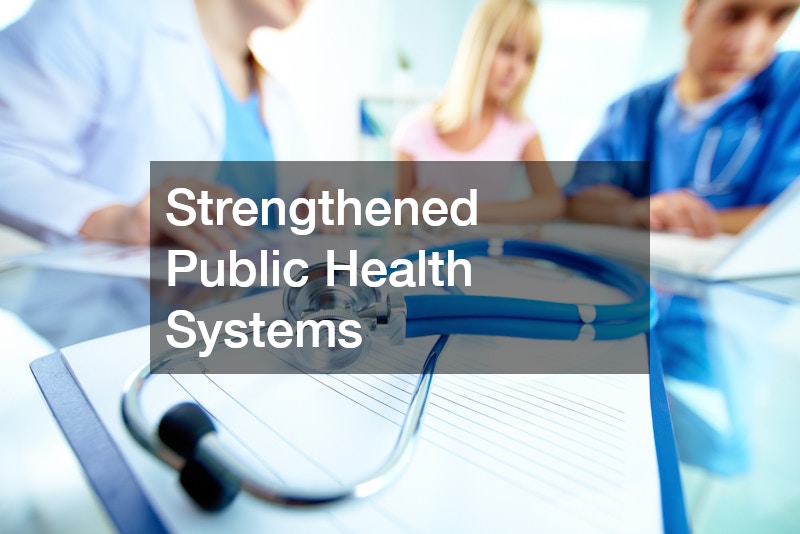
The importance of health cannot be overstated, and a local physician plays an essential role in maintaining personal and community health. Developing a strong connection with your local healthcare provider offers numerous advantages that transcend beyond individual benefits. This article will explore the depth of these benefits, emphasizing the impact on personal wellbeing and the broader community welfare.
Continuity of Care
Having a primary care physician ensures continuity of care that directly contributes to better health outcomes. Continuous care means your physician understands your medical history, allowing for more informed healthcare decisions. With an ongoing relationship, the physician can better monitor chronic conditions and recommend timely interventions.
Primary care physicians provide a stable healthcare environment, reducing the need for emergency medical interventions. Regular consultations mean potential health issues can be caught early before they escalate into more serious conditions. This consistent monitoring fosters trust and comfort, knowing you are well-looked after.
Personalized Health Advice
Personalized health advice is a crucial perk of developing a rapport with your local physician. Tailored recommendations are especially significant when considering factors like age, lifestyle, and existing health conditions. Such advice can lead to meaningful lifestyle changes and more effective health management.
Understanding individual health needs is essential in crafting an effective health plan. A local physician can offer guidance on diet, exercise, and preventive measures specific to your health profile. This personalization fosters a proactive approach to health, empowering patients to take charge of their wellbeing.
Proactive Health Management
Proactive health management is a key advantage of maintaining a relationship with a primary care physician. By engaging in regular health check-ups, potential health issues can be detected and managed promptly. This proactive stance reduces the risk of chronic diseases and supports a better quality of life.
Primary care physicians can identify risk factors for diseases before they manifest in more severe forms. By monitoring changes in your health status, they can intervene with preventive measures or treatments as required. This ongoing assessment helps manage conditions like hypertension, diabetes, and other lifestyle-related diseases more effectively.
Improved Communication
Building a strong relationship with your physician significantly enhances communication, crucial for effective healthcare delivery. Open dialogue allows patients to express their concerns without hesitation, facilitating accurate diagnoses and effective treatment plans. Improved communication also helps in demystifying medical terminologies, fostering trust, and improving compliance with prescribed treatments.
When patients feel heard, they are more likely to communicate openly about their symptoms, leading to better healthcare outcomes. Physicians can offer more nuanced advice when they fully understand a patient’s context and concerns. This bidirectional flow of information creates a comprehensive picture of a patient’s health, enabling individualized care.
Increased Trust and Comfort
Having an established rapport with your physician increases trust, which is essential for effective medical care. When trust is present, patients are more likely to follow through with treatment plans and attend routine check-ups. This comfort level reduces anxiety and ensures that healthcare visits are less daunting.
Familiarity with the healthcare provider allows for greater ease in discussing sensitive health issues. Patients are less intimidated in expressing their health concerns and are more willing to ask questions, resulting in more comprehensive care. Trust encourages commitment to healthcare plans, which contributes to improved health outcomes.
Strengthened Public Health Systems
Engaging with local physicians can significantly strengthen public health systems. These providers have insights into regional health trends and challenges, which is invaluable for community health planning. Their involvement can lead to more targeted interventions and improved health outcomes on a broader scale.
Local physicians act as a bridge between the public and healthcare resources, enabling communities to leverage available services effectively. They can guide public health policy and contribute to the design of community-specific health programs. This grassroots influence ensures that public health systems are responsive and effective.
Informal networks that local physicians build within communities also serve as crucial support structures. By collaborating with public health initiatives, they help reinforce public health messages and encourage preventive care. Strengthened public health systems consequently lead to healthier communities and reduced healthcare costs.
Enhanced Community Wellbeing
The engagement with local physicians can result in enhanced community wellbeing, promoting holistic health initiatives. Healthy communities are not only physically fit but also engage in supportive social structures that foster overall happiness and wellbeing. Local physicians play a pivotal role in advocating and contributing to these wellness programs.
Community wellbeing extends beyond individual health, influencing social determinants like education, employment, and quality of life. Physicians often participate in community health fairs, screenings, and educational initiatives, elevating the overall health literacy. A well-informed community can take better control of its health, resulting in a virtuous cycle of empowerment and wellness.
In conclusion, maintaining a personal and consistent relationship with your local physician yields profound benefits for both individuals and communities. From personalized care and accurate diagnoses to enhanced public health systems and community wellbeing, the advantages are multifaceted. By investing in these relationships, we not only improve our health outcomes but also contribute significantly to the vitality and resilience of our communities.
.





